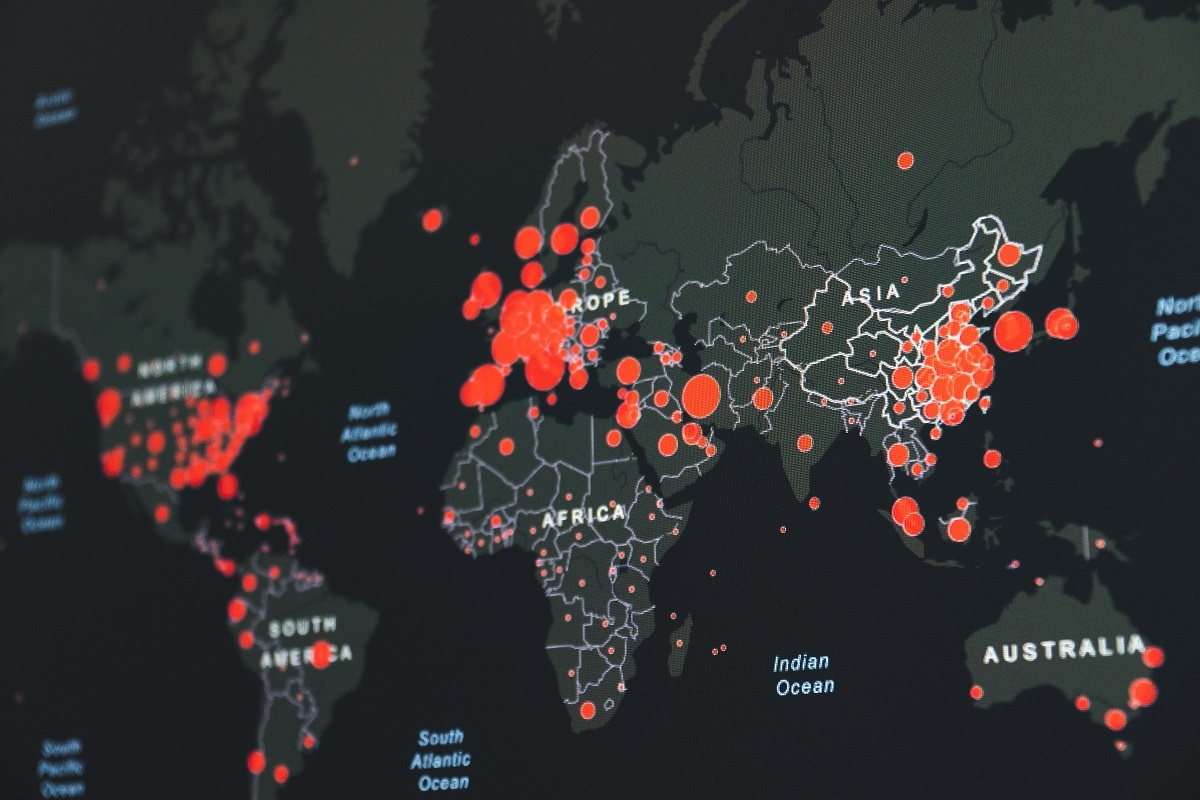Both Australia and Canada have seen a deteriorating relationship with China in the past few years – high profile disputes over Australia’s call for independent investigations into the origins of Covid-19 and the arrest in Canada of Huawei executive Meng Wanzhou have, among other things, strained bilateral relations and generated a sense of mistrust.
This challenging environment is underscored by the findings of a newly published survey of Chinese attitudes towards the world at large, which also provides Canadian and Australian policymakers with valuable insight into how to navigate their respective relationships with China.
The Chinese Citizens’ Global Perception Survey 2023 (CCGPS 2023) conducted by the China Institute at the University of Alberta examines Chinese citizens’ perspectives of China’s foreign relations and global roles, and preference for overseas tourism, study and work. The academic survey of 2,009 Chinese adults in the first quarter of 2023 was geared towards mainland Chinese attitudes on China’s current relations with Australia, Canada, the European Union, France, Germany, India, Japan, Russia, the United Kingdom and the United States.
Chinese perceptions of Australia and Canada are worth highlighting since both nations are quite similar culturally, and in terms of market structure and political systems. Moreover, these perceptions reflect how Chinese media portrays Canada and Australia to its citizens, and also the degree to which Chinese civil society and businesses are willing to engage with Canada and Australia in the future.
The survey reveals that in the eyes of the Chinese public, the global influence of Canada and Australia is considerably weaker than Russia, the United States, France and the United Kingdom – all permanent members of the United Nations Security Council. This aligns with Canada and Australia’s long-standing position as middle powers.

The Chinese public’s trust in Australia and Canada is equally low, just above the United States and Japan, which are the two nations that have been long regarded as the imaginary enemy in China’s patriotic education. The low trust in Canada and Australia can be attributed to several causes. Beyond the recent controversies, a perception of alignment with the United States in the context of the intensifying geopolitical rivalry between Beijing and Washington has led some Chinese citizens to view Canada and Australia as pawns, used by the United States in its Indo-Pacific grand strategy.
The distrust has fostered geopolitical tensions that are likely a significant reason for biased perceptions of the two nations’ performance in Covid-19 management. Australia and Canada were generally well regarded internationally for their relatively successful containment efforts. Australia, in particular, implemented strict border controls, quarantine measures and widespread testing, which contributed to controlling the spread of Covid-19, at least in the early phase of the pandemic. However, the survey shows that the performance of both nations has been perceived negatively by the Chinese public. The geopolitical origins of these negative appraisals are suggested by the finding that Chinese citizens believed Russia had the best response out of the jurisdictions in the sample questions, which is at odds with most international evaluations of Moscow’s handling of Covid-19.
Although the Chinese public holds a relatively negative view of Canada and Australia, they do not consider the two nations will be military competitors for China in the next decade. It is worth noting that Australia’s then defence minister and current leader of the Opposition Peter Dutton openly stated in 2022 that if a military conflict were to occur in the Taiwan Strait, it “would be inconceivable” for Australia not to engage in military action alongside the United States to defend Taiwan. Chinese domestic media has also reported on this matter. The survey findings suggest this statement has not significantly influenced Chinese public opinion.
The survey results also show that Canada and Australia are judged to have equal and moderate long-term importance to China, ranked behind Russia, the European Union, the United States, Germany, the United Kingdom and France. This public perception differs from how China’s government positions the two nations’ importance within their global partner network. China and Canada established a strategic partnership in 2005, which has not been upgraded since then. In contrast, China and Australia established a strategic partnership in 2012, and upgraded it to a comprehensive strategic partnership in 2014. This suggests Australia held more significance for China, perhaps due to China’s heavy reliance on Australian iron ore and other critical resources, and Australia’s location in the Indo-Pacific. The CCGPS 2023 results indicate that these issues do not significantly permeate Chinese public consciousness.
Yet the Chinese public would be open to preserving and even expanding current collaborative partnerships with Canada and Australia in both economic and technological fields.
While the findings reveal that Canada and Australia are viewed as less attractive destinations for studying, this is unlikely to have a great effect, and these two nations will remain an appealing option for many prospective Chinese international students. In particular, an increasing number of middle-class families and young people strongly considered “running away” from China during the pandemic. The relaxed immigration policies and multicultural societies in Canada and Australia will continue to make them an attractive choice for Chinese with these aspirations.
The mixed feelings about Canada and Australia reflected in the CCGPS 2023 survey are doubtless a product of geopolitical alignment with the United States. However, the findings demonstrate that Chinese citizens do value the economic and civil society linkages that they have with Canada and Australia. This suggests that while governments may brawl, pragmatic interests such as economic development, travel and emigration will facilitate continued cooperation between the people of China, Canada and Australia.
This article draws on the research led by Reza Hasmath and Jia Wang, Chinese Citizens’ Global Perception Survey: How China Sees the World in 2023, published by The China Institute, University of Alberta.

